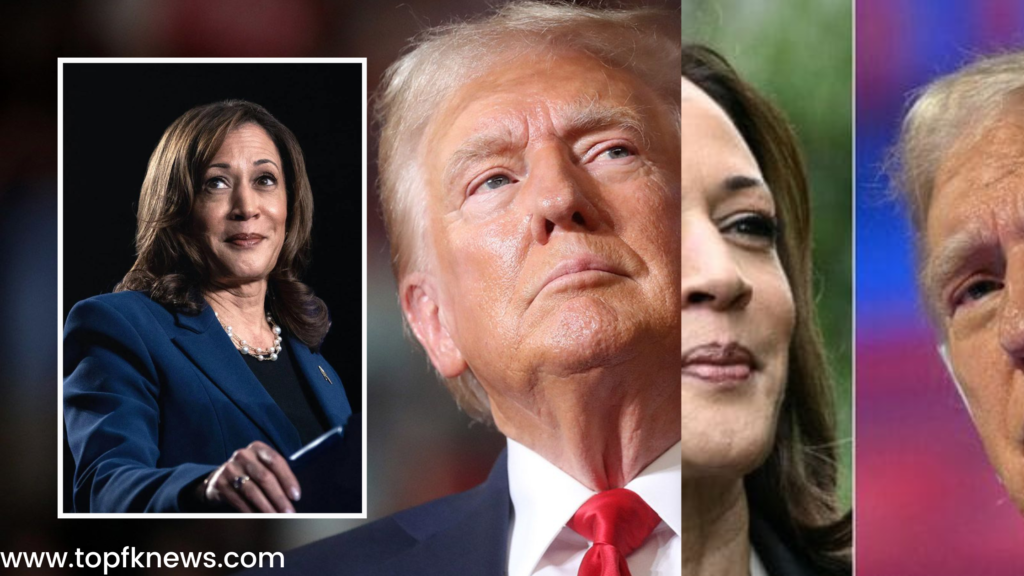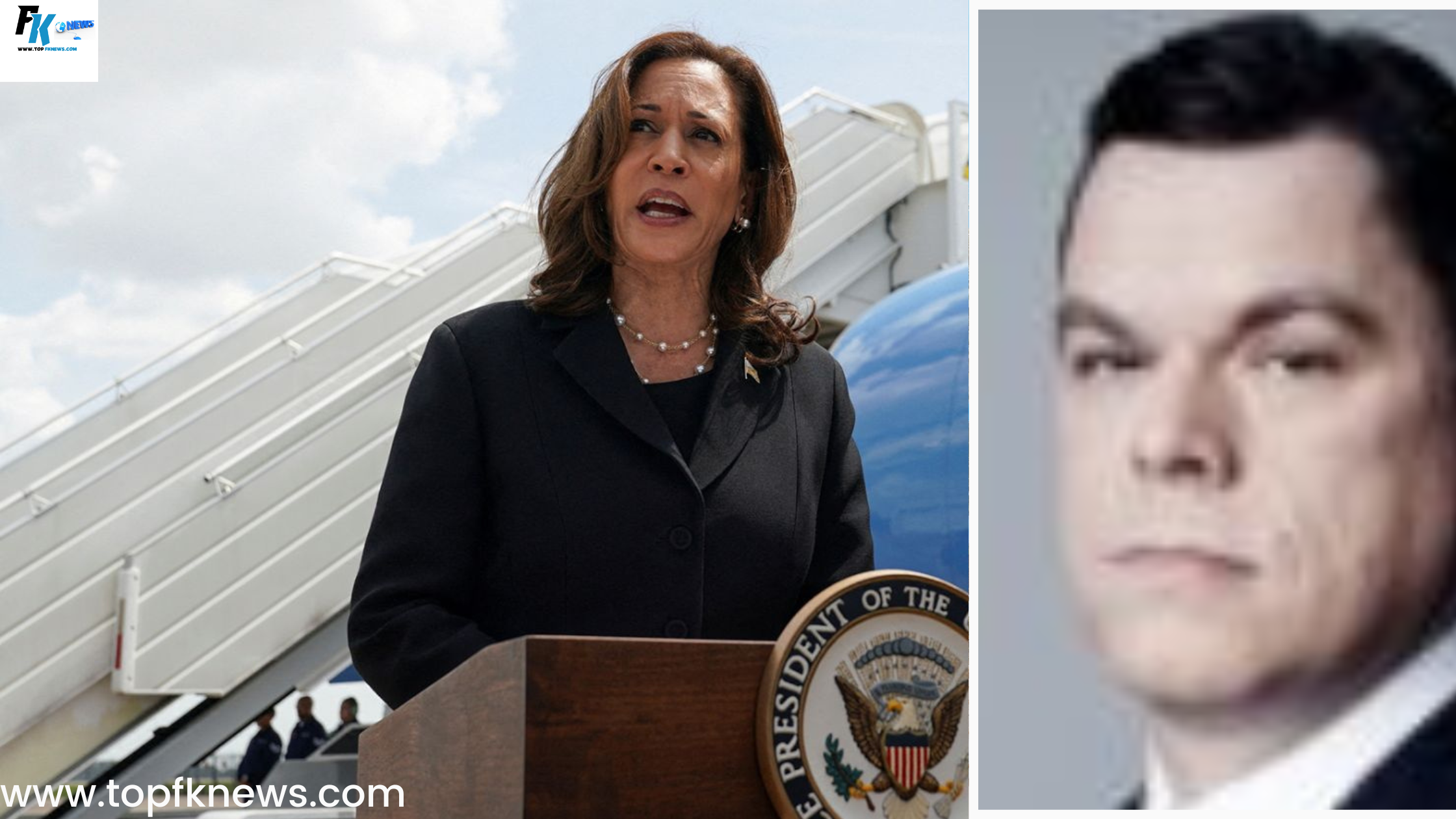Harris is set to unveil her running mate on Tuesday, marking a significant moment in the 2024 presidential race following a series of events that have left Republican nominee Donald Trump struggling. She will introduce her vice-presidential choice at a rally in Philadelphia, initiating a joint campaign across a broadened electoral map, made possible by President Joe Biden’s decision to step down from reelection just over two weeks ago.
In the final hours of her search, after an expedited vetting process, Harris focused on two main candidates: Pennsylvania Governor Josh Shapiro, 51, and Minnesota Governor Tim Walz, 60. Sources informed News that Arizona Senator Mark Kelly was also considered as of Monday afternoon. Shapiro, a rising star in the Democratic Party, is popular in Pennsylvania, a crucial swing state, while Walz, an experienced progressive leader, could help strengthen Harris’ appeal in the Midwestern states of Wisconsin and Michigan, critical to her path to the presidency.
This announcement gives Harris an opportunity to boost her campaign’s momentum, energizing a Democratic Party that had seemed destined for defeat in November. Her relative youth at 59 contrasts with Trump’s age of 78, nullifying concerns about Biden’s age and acuity that would have been issues in a potential second term.
While the focus remains on Harris’s choice of vice president, recent developments hint at further twists in the race. These developments include Trump’s escape from an assassination attempt and Biden’s withdrawal from the race, setting the stage for an unpredictable lead-up to November.
Economic and Middle Eastern tensions shadow Harris's vice-presidential selection
Harris’ final decision-making occurred amidst rapidly changing domestic and international events, underscoring the complex political landscape she faces as her sudden rise continues to evolve.
On Monday, global stock markets plunged, causing the Dow Jones Industrial Average to drop by 1,000 points. This occurred amid rising unemployment and renewed fears of a US recession, which could undermine voter confidence in an economy that the White House claims is strong but still leaves many feeling insecure. Although there is no imminent threat of an economic collapse akin to the 2008 crisis that contributed to Barack Obama’s victory over John McCain, the current banking system remains robust, inflation has decreased, and the US economy has rebounded more effectively than other developed nations post-pandemic. Nevertheless, in a closely contested election likely to be decided by a small margin in key swing states, any economic disruption could be significant. Harris, tied to the current administration, has limited influence over factors like potential interest rate cuts by the Federal Reserve.
On Monday, Harris also balanced discussions about her vice-presidential pick with her official responsibilities. She joined President Biden in the White House Situation Room for intense diplomatic discussions amid signs of a potential Iranian retaliatory strike against Israel. Such an event could escalate into a regional war, possibly involving the United States. The injury of several US service members in a suspected rocket attack on an Iraqi airbase highlighted the unpredictable elements that could impact the election. US officials informed News that Iran is expected to retaliate within 24 hours for the killing of Hamas leader Ismail Haniyeh in Tehran, a period that coincides with Harris’ plans to announce her running mate.
The ongoing conflict in the Middle East has already influenced the campaign. Israel’s actions, despite Biden’s calls to protect civilians in Gaza following the October 7 terror attacks, have caused rifts within the Democratic coalition, particularly in Michigan, which has a significant Arab American population.
The conflict has also affected Harris’ search for a running mate. Pennsylvania Governor Josh Shapiro, who is Jewish, has faced criticism from the left for his comments on campus protests. Although he has been more critical of Israeli Prime Minister Benjamin Netanyahu than Biden, some progressives have warned against selecting him as a running mate.
On Monday, Representative Jake Auchincloss criticized what he described as an “overly online left” campaign against Shapiro’s potential nomination, suggesting there is an antisemitic undertone to the opposition.
Trump looks for opportunities as he grapples with Harris

Trump, struggling to adapt his campaign to his new Democratic rival, attempted to leverage both evolving crises on Monday. He aimed for a potentially more effective attack against Harris, moving away from last week’s questioning of her racial identity. On social media, he labeled the stock market drop a “Kamala Crash” and ominously suggested that World War III was imminent.
Though his comments were lacking in context and alarmist, perception can be as influential as reality in a presidential race. Trump is trying to associate Harris with what he portrays as Biden’s failures, hoping to convince Americans that the country and the world are spiraling out of control.
At the very least, the economic and Middle Eastern turmoil will put more pressure on Harris to counter Trump’s populist economic rhetoric and to clarify her leadership approach during a time when US global influence is more challenged than it has been in decades.
An Essential Decision
Selecting a running mate is the first and most crucial decision a party nominee makes, as it involves choosing a potential future president. While this choice attracts significant public attention, boosts fundraising, and can strengthen a nominee’s campaign narrative or offset weaknesses, it has not been a decisive factor in winning an election for many years.
For Harris, the most important tactical move may be to ensure her choice does not detract from her successful rollout. Any mistakes in vetting her choice could give Trump and his campaign an opportunity to exploit weaknesses and regain momentum.
Harris has seen firsthand the risks of running mate politics. Trump and his team have spent two weeks defending his choice, Ohio Senator JD Vance, after his past comments about Democratic politicians caused a rocky rollout, reminiscent of Sarah Palin’s controversial selection in 2008. The Harris campaign aims for a scandal-free introduction and a successful swing state tour to keep Trump off balance and maintain momentum heading into the Democratic National Convention in Chicago in two weeks.
Tuesday’s events in Philadelphia would have been unimaginable less than three weeks ago, when Biden was resisting increasing pressure from Democrats to step aside after his poor debate performance in Atlanta. At that time, the 2024 race, with significant implications for America’s democracy and future direction, was still reeling from an assassination attempt on Trump just before he secured his third GOP nomination.
The presidential race had been dominated by Trump’s legal issues, but his legal delays and support from conservative judges have postponed consequences for his most serious alleged offenses, including his efforts to overturn the 2020 election results.
Despite these challenges, Harris’ strong campaign start has turned the election into a tight race, according to recent polls. The latest CNN Poll of Polls shows Trump at 49% and Harris at 47%, indicating no clear leader nationally. However, it is too early to gauge the full impact of her campaign, especially without comprehensive swing state data.
A successful rollout of her running mate could sustain positive momentum in the transformed race, provided external events do not interfere.

